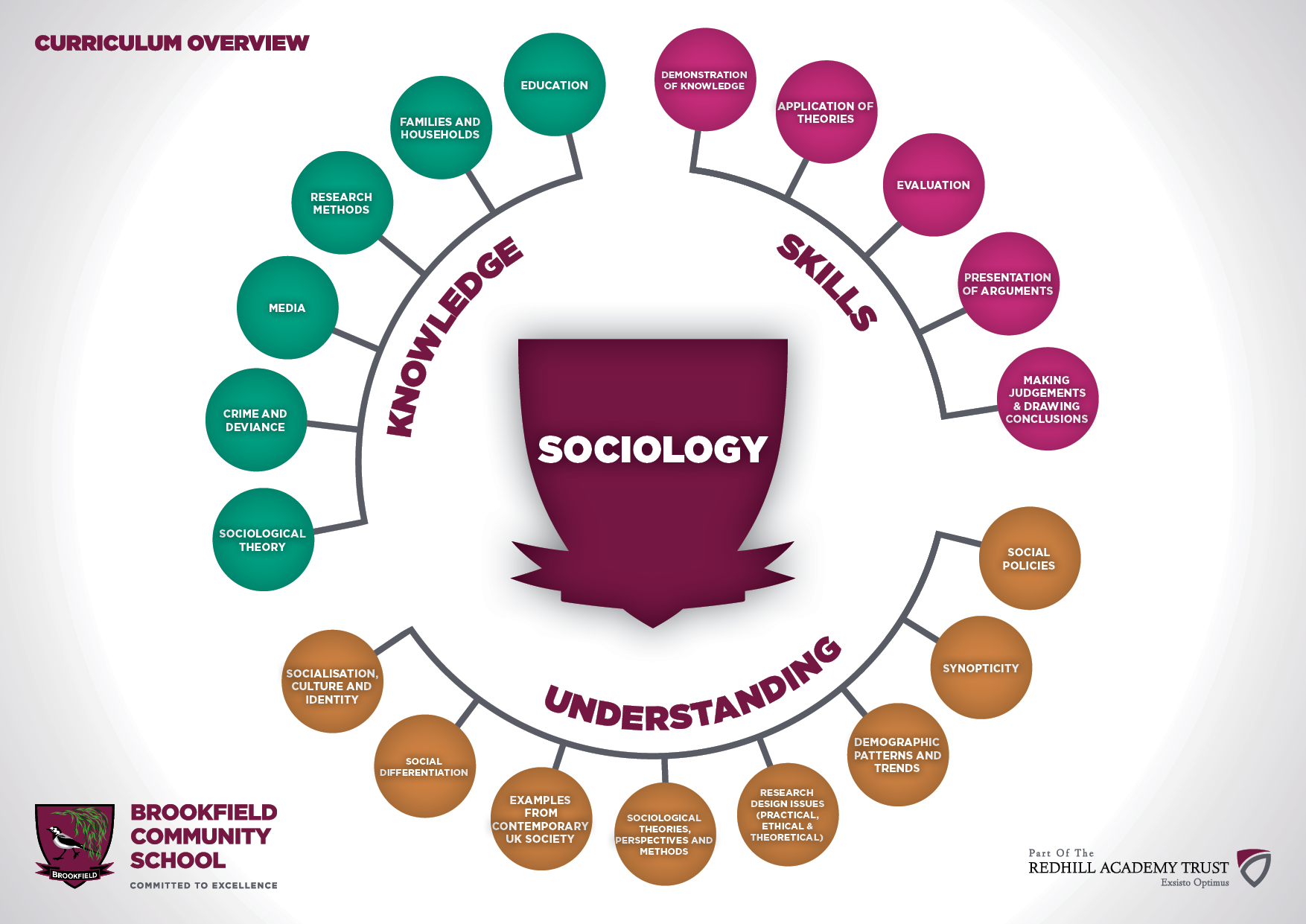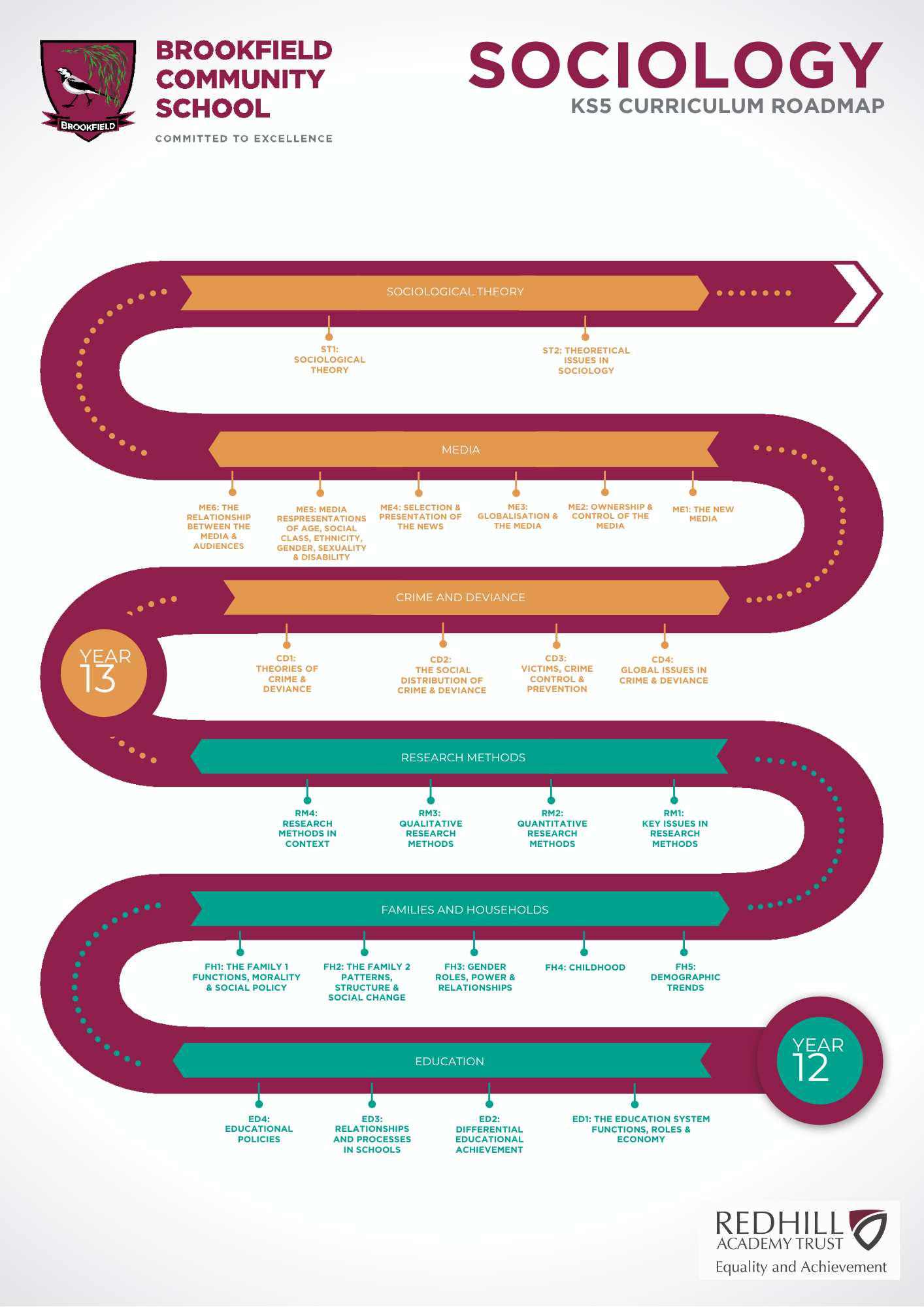Sociology
 Click image to view full size.
Click image to view full size.
Introduction to Sociology
Sociology is the academic study of the individuals, groups and institutions that form the society we live in today. Sociologists are responsible for designing, conducting and evaluating research to uncover the causes and consequences of a range of social issues as diverse as society itself.
In studying sociology, students learn to question widely-held assumptions about the problems society faces using theories, evidence and examples developed by classical and contemporary thinkers from around the world. Students also learn a number of skills including the use of evidence to support your arguments, how to investigate facts, and critical thinking. It is relevant to the society that we live in so students are bound to enjoy learning about topics that are relevant to everyday life; plus it opens the door to a fantastic range of interesting careers.
Key Stage 5
A Level Sociology
Exam Board: AQA
The Course
Students study the following two core themes:
- Socialisation, culture and identity
- Social differentiation, power and stratification.
The themes should be understood and applied to the following particular substantive areas of Sociology:
- Education – Theories of the Role and Purpose of Education; Differential Educational Achievement; Relationships and Processes in Schools; Educational Policies
- Families and Households - Functions, Morality and Social Policy; Patterns, Structure and Social Change; Gender Roles, Power and Relationships; Childhood; Demographic Trends
- Media - The New Media; Ownership and Control of the Media; Globalisation and the Media; Selection and Presentation of the News; Media Representations of Age, Social Class, Ethnicity, Gender, Sexuality and Disability; The Relationship Between the Media and Audiences
- Crime and Deviance - Theories of Crime and Deviance; The Social Distribution of Crime and Deviance; Victims, Crime Control and Prevention; Global Issues in Crime and Deviance.
In addition, students study Sociological Research Methods in Year 1 and Sociological Theory in Year 2.
How are students assessed?
For A Level Sociology there are three exams, each accounting for one third of your A-level. The three exams each last 2 hours and are worth 80 marks each. The exams consist of a mixture of short answer and extended writing questions.
- Paper 1 – Education with Theory and Methods
- Paper 2 – Topics in Sociology (Families and Households; Media)
- Paper 3 – Crime and Deviance with Theory and Methods

Enrichment
- Opportunities to put sociological research methods into practise and for students to carry out their own fieldwork
- Regular opportunities to research, analyse and discuss current crimes in the local and national media, and developments in policy and criminal justice
- Visits to magistrates and crown courts
- Opportunities to meet criminal justice professionals and discuss their work and careers.
Progression Opportunities
A Level Sociology is an academically respectable and recognised qualification for degrees in Humanities, Social Sciences and Law at all universities. It encourages critical-thinking, problem-solving and analysing problems from multiple viewpoints, so will be useful if students are:
- Thinking of following a career in an area of social work, social policy, or in local or central government
- Thinking of following a career which involves working with people, particularly in the public sector, for example in the police, nursing, teaching, etc
- Thinking of following a career in human resources, marketing, or market research.

